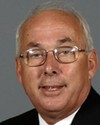Mr. Speaker, I will start off with a very bold statement, that Kyoto should not be ratified. It is based on uncertain science with new doubts coming to light almost daily. It is based on poor economic models which hide the serious damage that will occur to Canada's economy. It will direct limited resources away from much more serious, more imminent problems that we need to address now.
The minister likes to feign an intellectual superiority on this topic. In fact, it is merely an empty arrogance hiding the problems with Kyoto that he knows exist. The tale he tells is filled with sound and fury but it still signifies nothing.
How did we get to such a low point in Canadian international relations? Why did Canada sign an agreement that will hurt our economy and our standard of living but that will not hurt any other country like ours? Part of the answer lies in the Prime Minister's failure to understand the strange combination of political cynicism and environmental idealism that came together in the 1997 Kyoto negotiations.
In short, the only reason Kyoto was started in the first place was that the U.S. failed to stop it. President Clinton, for domestic political calculations, allowed the Kyoto protocol to go forward in 1997 thus trapping Canada into a bizarre economic suicide pact. At least part of the U.S. government had no intention of going along with this scheme.
On July 25, 1997, before the Kyoto protocol was negotiated, the U.S. senate passed by a 95 to zero margin the Byrd-Hagel resolution. This resolution stated the senate would not ratify any protocol to the framework convention that would result in serious harm to the economy of the United States and that did not include binding targets and deadlines for developing countries.
The U.S. never had any intention of signing onto this. Going into Kyoto, the outcome was far from uncertain. No deal would be struck, U.S. negotiator Melinda Kimble was promised, without meaningful participation of key developing countries and realistic emissions targets. Specifically, the U.S. sought only to reduce global emissions to 1990 levels by 2010. The American negotiators initially refused to budge despite a barrage of biased media reports and UN sanctioned lobbying by hundreds of environmental activists. In the midst of the deadlocked negotiations, on December 8, 1997 then Vice-President Al Gore flew to Kyoto.
Here is where we get into the strange combination of political cynicism and environmental idealism. Gore had long demonstrated considerable environmental idealism. Gore had not only environmental interests in getting the U.S. into Kyoto, but also a political one. He was already thinking ahead to the 2000 presidential race. He wanted the U.S. to sign the Kyoto protocol in order to burnish his green friendly credentials as part of his election strategy.
Still, Gore could not agree to the Kyoto protocol without the permission of then President Clinton. Kyoto offered no benefits politically to Clinton. The senate, Republicans and Democrats, rejected outright the European plan even before the conference had begun. Clinton did not need any more fights with Congress.
Political analysts at the time speculated that Clinton and Gore reached the following agreement. Clinton would allow Gore to sign the Kyoto protocol but the protocol would not go to the senate for ratification until Clinton was out of the White House. Gore could not use Kyoto as proof of his green credentials in the 2000 campaign. If successful, he could attempt senate ratification in his own presidential term.
This is what happened. The Clinton administration signed the Kyoto protocol on November 12, 1998 but did not submit it to the senate for ratification. Whatever the reasons, Gore at Kyoto instructed U.S. negotiators to show increased negotiating flexibility. Three more days of protracted negotiations ensued. The delay was needed to allow the U.S., the EU and Japan to broker a deal on their individual allocations. In the end, the countries agreed to a 5.2% global reduction target by 2008 to 2012. Developing countries were exempted from having to make any reductions and only developed countries would have emissions reduction targets imposed.
The EU, however, was allowed to share out its reductions as it pleased among its member countries. Thus some EU members could increase greenhouse gas emissions over 1990 levels while others might have to make larger reductions. As for us, our Prime Minister simply wanted to out-green the Americans. That was the mandate they were sent to Kyoto with. As Gore collapsed on the U.S. position and raised the percentage of emissions cuts below 1990 levels, Canada followed along.
The ultimate irony is in the end, the Prime Minister did not out-green the president. The U.S. settled at a 7% reduction and Canada settled for a 6% reduction. Then, significantly, George Bush was elected as President of the United States in 2000 and in March 2001 he declared the U.S. would not ratify the Kyoto accord. There were no surprises there.
The rejection by the U.S. placed the future of Kyoto in serious doubt. First of all, the Kyoto protocol will only enter into force after it has been ratified by at least 55 members of the United Nations framework convention on climate change, including developed countries representing 55% of the total 1990 carbon dioxide emissions. The U.S. produces 36% of these emissions and its absence may make it difficult to bring the protocol into force.
Why did the Prime Minister make the surprise announcement of a vote on ratification at the Johannesburg summit in September? Here is a speculation. The Prime Minister is attempting to reverse the Clinton manoeuvre. Where Clinton could not ratify Kyoto, the Prime Minister believes he can. Where Clinton used Kyoto to help his potential successor, Al Gore, the Prime Minister seeks the opposite, to place Kyoto as a millstone around the neck of his potential successor.
The Prime Minister may get the last laugh on the member for LaSalle—Émard by taking credit for ratification while leaving the painful details of implementation. It is an entertaining political power play for pundits to comment on, but the Canadian audience has little to applaud about it, for the one simple, stark reason that putting the Canadian economy into the Kyoto straitjacket threatens economic strangulation. With the United States outside of Kyoto, the whole package makes no economic sense. The emissions credit trading scheme starts to unravel.
In a letter leaked to the media, the Minister of Industry acknowledged as much in writing:
When the United States changed their position on ratifying Kyoto, it dramatically changed the playing field for Canada.
Despite the grandiose rhetoric, this debate is something of a farce. Pro-Kyoto members are left with politics of fear to win the day. They would have one believe that the science and economics are clear and we need to move forward at breakneck speed to prevent a global meltdown. However, the facts do not support these doomsday pronouncements.
The latest report of the Intergovernmental Panel on Climate Change comes four years after signing Kyoto and still readily admits there are many unknown factors that could significantly affect its conclusion. To suggest pro-Kyoto science is unquestionable is not true. Thousands of scientists have gone on the record expressing their concern with climate science, a far cry from the 10% sliver that the minister alluded to in his speech.
Dr. Khandekar, a former research scientist with Environment Canada who has a Ph.D. in meteorology wrote:
Hundreds of climate scientists in Canada and around the world are now beginning to question the validity of projections made with today's insufficiently verified climate models.
Dr. Pat Michaels, professor of environmental sciences at the University of Virginia wrote:
The Canadian government and pro-Kyoto supporters believe that there is widespread agreement on the science of Kyoto and that Canada should just move on with ratifying the accord. Nothing could be further from the truth.
On November 25, 27 climate specialists sent a letter to the Prime Minister calling on government to delay ratification. In the words of these specialists:
Delaying ratification for a short period so as to allow proper science consultations to take place will do absolutely no damage to Canada or the environment and is unquestionably the prudent and responsible course of action at this time.
The group includes both presenters and reviewers of the 2001 IPCC report.
Does all this evidence mean we should assume global warming, bio-anthropogenic or human intervention is false? Not at all, but we should acknowledge the uncertainties. Given the drastic cost to Canada, we should resolve them before we ratify Kyoto, not after.
As I said earlier, Canada is one country worse off under the accord. Russia will gain credit for closure of factories that have already closed. The EU will jointly benefit from the closure of east German plants that have ceased production post 1990. Economic predictions vary. The federal government admits Canada stands to lose $15 billion and 250,000 jobs by 2010. The private sector estimates these numbers to be as high as $40 billion and 450,000 jobs.
The much vaunted IPCC report's economic models are now being seriously questioned. The National Post reported that the head of the IPCC will be doing a complete review this month in response to the serious concerns from experts that economic projections used in the IPCC emissions scenario are technically unsound.
Kyoto is a misallocation of resources. It does not address harmful airborne particulates. It does not safeguard water quality. It will not reduce acid rain or smog. This is where our efforts should be focused, not at some pie in the sky thinking that Kyoto is going to green the earth and save the environment.
Those who oppose Kyoto are branded either as heartless fronts for industry or as those who do not care about the environment, as if they did not have children of their own. Polls show that the more Canadians know about Kyoto, the less they support it. Kyoto proponents resort to tactics which are reminiscent of colonial witch trials. Their minds are made up and woe to anyone who tries to confuse them with the facts.
The Alliance is determined that Canadians hear all the facts prior to ratification. We support a strong economy and a sustainable environment, two things that Kyoto simply cannot deliver. Let us put an end to the rhetoric and deliver a real plan for addressing our environmental needs.
On October 24 members stood in the House and voted that they would not ratify Kyoto until we had a plan that Canadians understood, a plan that showed all the costing, that showed the cost of the Kyoto accord, that showed the cost to the economy. Members voted in the House that we should not ratify this accord until we have that.
The government seems to have total contempt for the Canadian Alliance motion that it supported. It seems to have no desire to present those facts to the House.
The government comes along with its PowerPoint presentations and its slide shows, but there are no details. It is an empty shell and we are supposed to believe the government. It is becoming more clear that the more Canadians learn about the Kyoto accord, the more information they find out about it, the more they learn that it will not plant a tree, that it will not clean the stream, that it will not clean up the air, that it will do none of those things, they start to question why we would sign such a crazy agreement. Why would Canadians ratify such a ridiculous agreement that will cost them thousands and thousands of jobs?
We have to continue to push the Canadian people to make sure they understand that the government is attempting to lead them down the garden path on this, that it is not coming clean. Of course when we ask questions of the minister in question period and he does not have an answer, he resorts to arrogance. He resorts to pretending he has a superiority of knowledge on the subject and that the rest of us know nothing.
Nothing could be further from the truth. When we start digging into the details, we find that this is an absolute economic disaster for Canada. It will only get worse. There is no way we should allow this to proceed.
There are a number of other areas in the Kyoto accord that are important for Canadians to know about. The Canadian negotiators negotiated a bad deal.
We could look at countries such as Australia, which has a larger economy than ours. It negotiated to be 8% above 1990 levels. Canada negotiated to be 6% below 1990 levels, our own attempt to try to one up the Americans and we failed to do even that.
The economics are not there. It is simply a disaster for Canada. The government is planning on exporting tens of thousands of jobs out of the country on its emissions trading scheme.
When we look at the minister's latest plan, and again I would not call it a plan, it is more of a slide show, the numbers simply do not add up. By the government's own numbers it is up to 30 megatonnes to 60 megatonnes short of reaching what it said it would do. It is almost 25%. How could we possibly believe anything the government presents to us when it is that far off track?















